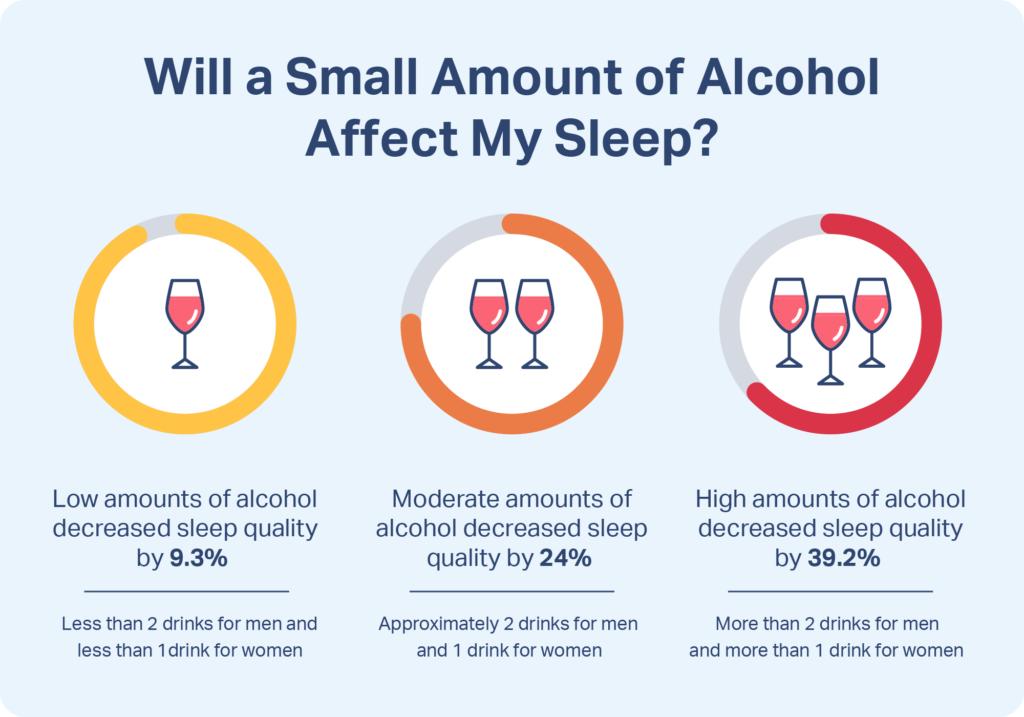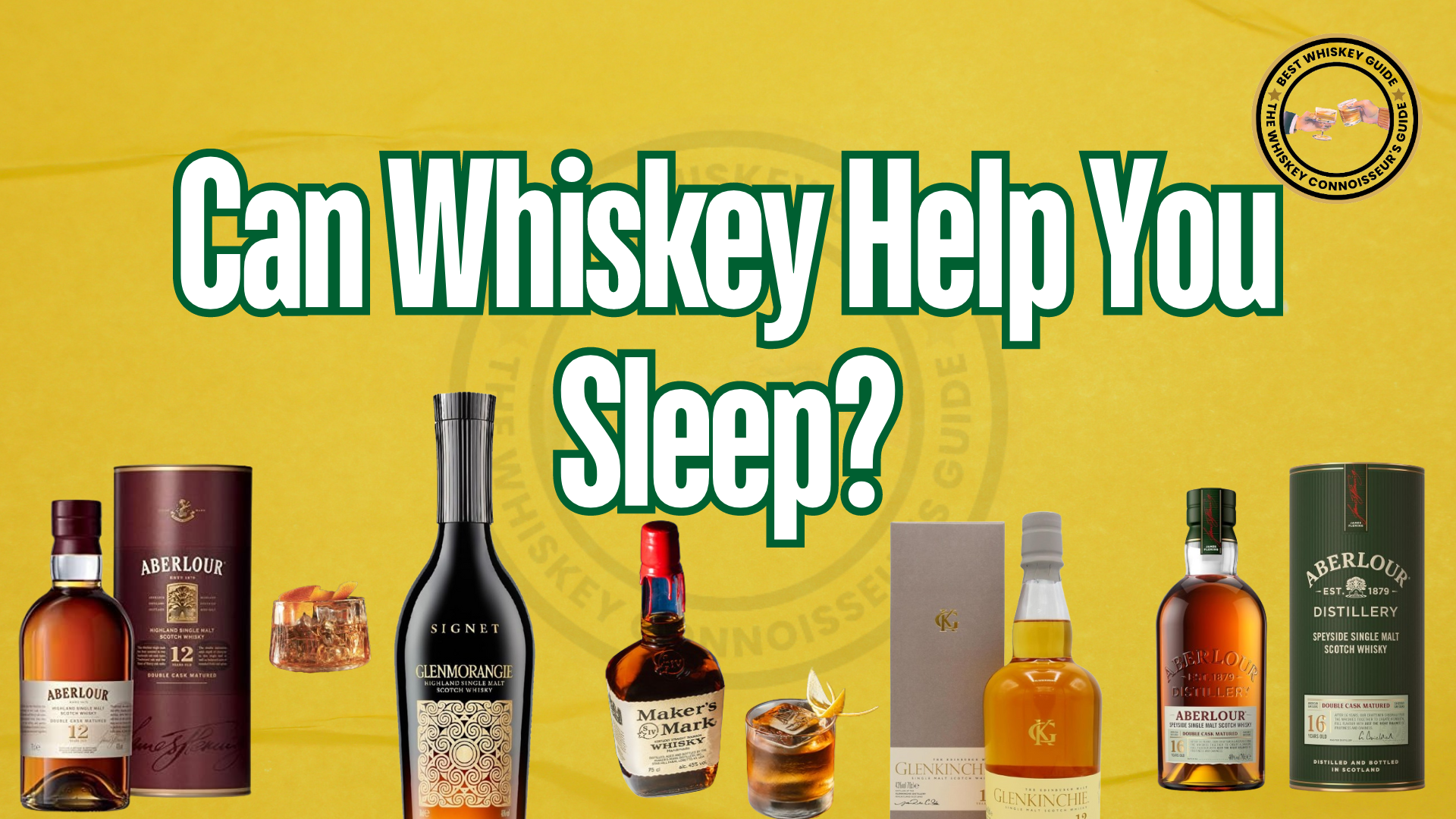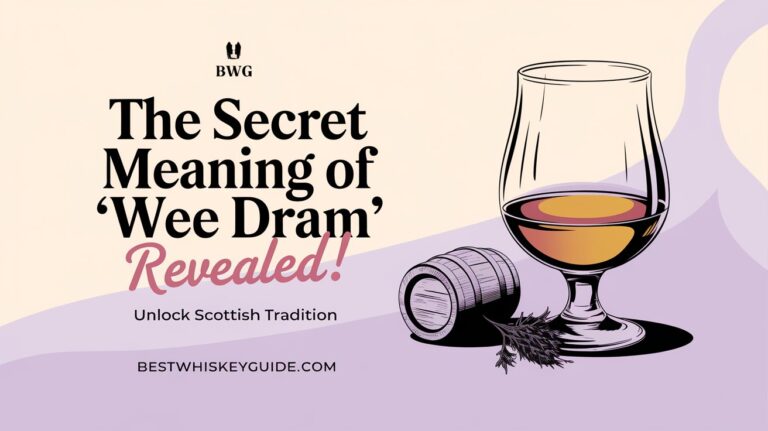Can whiskey help you sleep better, or is it just a myth? Many people enjoy a nightcap to unwind before bed, but understanding the effects of whiskey on sleep is crucial for making informed decisions about your nightly rituals. This article delves into the science behind alcohol and sleep, explores whether whiskey can help you fall asleep faster, and discusses the risks and alternatives for a better night's rest.
Can Whiskey Help You Sleep? Table of Contents

The Science Behind Alcohol and Sleep
How Alcohol Affects the Central Nervous System
Alcohol, including whiskey, acts as a central nervous system depressant. It enhances the activity of gamma-aminobutyric acid (GABA), a neurotransmitter that promotes relaxation and drowsiness. However, it also reduces the activity of glutamate, which is responsible for wakefulness and alertness (Sleep Foundation, 2021; National Institute on Alcohol Abuse and Alcoholism [NIAAA], 2020).
Impact on Sleep Stages
Alcohol disrupts sleep stages, particularly rapid eye movement (REM) sleep. REM sleep is crucial for cognitive functions such as memory consolidation and emotional regulation. Drinking whiskey can increase the proportion of deep sleep (N3) during the first half of the night but leads to fragmented sleep and reduced REM sleep in the latter half, resulting in overall poor sleep quality (Ebrahim et al., 2013; Roehrs & Roth, 2018).
Can Whiskey Help You Fall Asleep Faster?
Initial Sedative Effects
Whiskey's sedative properties can help you fall asleep faster by promoting relaxation. However, subsequent sleep disturbances often overshadow this benefit (Sleep Foundation, 2021).
Expert Opinions
Dr. Bhanu Kolla, a sleep medicine specialist at the Mayo Clinic, explains that while alcohol may help initiate sleep, it significantly disrupts the sleep cycle, leading to non-restorative sleep and frequent awakenings (Kolla, 2019).
Whiskey's Impact on Sleep Quality
Disruption of Sleep Architecture
Alcohol reduces REM sleep, resulting in less restorative sleep, frequent awakenings, and vivid dreams. This can leave you feeling unrefreshed and fatigued the next day (Sleep Foundation, 2021; Roehrs & Roth, 2018).
Long-term Consequences
Chronic use of whiskey as a sleep aid can lead to tolerance, requiring larger amounts to achieve the same effect. This increases the risk of alcohol dependence and long-term health issues such as liver damage and cardiovascular problems (NIAAA, 2020).
Risks and Drawbacks of Using Whiskey as a Sleep Aid
Potential for Dependence
Regular use of whiskey for sleep can lead to alcohol dependence. According to the NIAAA, even moderate drinking can become problematic if used habitually for sleep (NIAAA, 2020).
Health Risks
Long-term alcohol use can result in liver damage, cardiovascular issues, and mental health problems. Additionally, alcohol can exacerbate existing conditions like insomnia and sleep apnea (NIAAA, 2020; American Academy of Sleep Medicine [AASM], 2021).
Whiskey and Sleep Disorders
Impact on Insomnia and Sleep Apnea
Alcohol relaxes the muscles in the throat, increasing the likelihood of airway obstruction and snoring. For those with sleep apnea, this can result in more severe symptoms and poorer overall sleep quality (AASM, 2021).
Frequency of Awakenings
Regular consumption of whiskey can lead to frequent awakenings and fragmented sleep, making it harder to achieve restorative rest (Sleep Foundation, 2021).
Effects of Different Types of Whiskey on Sleep
The effects of whiskey on sleep can vary depending on the type of whiskey consumed. For instance:
- Bourbon whiskey, which is made primarily from corn, may have a slightly sweeter taste and a higher alcohol content, potentially leading to more pronounced sleep disruptions (Whisky Advocate, 2020).
- Rye whiskey, which contains a higher proportion of rye grain, may have a spicier flavour profile and a lower alcohol content compared to bourbon, but it can still negatively impact sleep (Whisky Advocate, 2020).
- Scotch whisky, made primarily from malted barley, can have a wide range of flavour profiles depending on the region and production methods. However, like other types of whiskey, it can disrupt sleep patterns and lead to poor sleep quality (Whisky Advocate, 2020).
Moderation and Safe Consumption Guidelines
Recommended Limits
To minimize the negative impact of whiskey on sleep, it is essential to consume it in moderation. The recommended limit for women is up to one drink per day and for men, up to two drinks per day (NIAAA, 2020).
Tips for Minimizing Negative Effects
- Avoid drinking close to bedtime: Allow your body time to metabolize the alcohol.
- Stay hydrated: Drink water to mitigate the diuretic effects of alcohol.
- Have a nutritious meal: Eating before drinking can help reduce alcohol's impact on sleep (NIAAA, 2020).
Alternative Remedies for Better Sleep
Herbal Teas and Natural Supplements
Consider alternatives such as herbal teas like chamomile or valerian root. These natural remedies promote relaxation without the adverse effects of alcohol (Ngan & Conduit, 2011).
Relaxation Techniques and Cognitive Behavioral Therapy for Insomnia (CBT-I)
- Incorporate relaxation techniques like meditation, deep breathing exercises, or aromatherapy using essential oils like lavender or bergamot.
- Establishing a consistent bedtime routine and optimizing your sleep environment can also contribute to better sleep quality (AASM, 2021).
- CBT-I is a highly effective treatment for chronic insomnia that addresses the underlying causes of sleep disturbances (Trauer et al., 2015).
Expert Opinions and Studies
Insights from Sleep Experts
Experts agree that while alcohol can help you fall asleep initially, it generally results in poorer sleep quality. Recent studies emphasize the importance of healthy sleep habits over using alcohol as a sleep aid (Sleep Foundation, 2021; AASM, 2021).
Comparative Analysis with Other Sleep Aids
Compared to other sleep aids like melatonin supplements or CBT-I, whiskey is less effective and more detrimental in the long run. CBT-I, in particular, addresses the underlying causes of insomnia and promotes long-term sleep improvements (Trauer et al., 2015).
Frequently Asked Questions (FAQ)
- Can I drink whiskey every night to help me sleep? No, it is not recommended to drink whiskey every night as a sleep aid. Regular alcohol consumption can lead to dependence and negatively impact sleep quality in the long run (NIAAA, 2020).
- Is it better to drink whiskey neat or on the rocks for sleep? The way you drink whiskey does not significantly influence its effects on sleep. However, drinking whiskey on the rocks may slightly dilute the alcohol content and slow down consumption, potentially reducing the negative impact on sleep (Whisky Advocate, 2020).
- How long before bed should I stop drinking whiskey? It is advisable to stop drinking whiskey at least a few hours before bedtime to allow your body time to metabolize the alcohol and minimize its impact on sleep (NIAAA, 2020).
Can Whiskey Help You Sleep? Conclusion
While whiskey might help you relax and fall asleep faster, its overall impact on sleep quality is negative. For better sleep, adopting healthier habits and exploring non-alcoholic remedies is advisable. Consult a healthcare professional for personalized advice if you struggle with sleep issues.
Additional Resources
- Alcohol and Sleep: What You Need to Know (Sleep Foundation)
- Cognitive Behavioral Therapy for Insomnia (AASM)
- Insomnia - Diagnosis and Treatment (Mayo Clinic)
Sleep Diary Template
DateTime to BedTime to SleepNumber of AwakeningsWake TimeTotal Sleep TimeAlcohol Consumption
Track your sleep patterns and alcohol consumption to identify potential issues and discuss them with a healthcare professional.
References
American Academy of Sleep Medicine. (2021). Cognitive Behavioral Therapy for Insomnia. https://aasm.org/resources/factsheets/insomnia_cbt.pdf
Ebrahim, I. O., Shapiro, C. M., Williams, A. J., & Fenwick, P. B. (2013). Alcohol and sleep I: effects on normal sleep. Alcoholism: Clinical and Experimental Research, 37(4), 539-549. https://doi.org/10.1111/acer.12006
Kolla, B. P. (2019, October 16). Does alcohol help you sleep? Mayo Clinic. https://www.mayoclinic.org/healthy-lifestyle/nutrition-and-healthy-eating/expert-answers/alcohol-and-sleep/faq-20058355
National Institute on Alcohol Abuse and Alcoholism. (2020). Alcohol and Sleep. https://www.niaaa.nih.gov/publications/brochures-and-fact-sheets/alcohol-and-sleep
Ngan, A., & Conduit, R. (2011). A double-blind, placebo-controlled investigation of the effects of Passiflora incarnata (passionflower) herbal tea on subjective sleep quality. Phytotherapy Research, 25(8), 1153-1159. https://doi.org/10.1002/ptr.3400
Roehrs, T., & Roth, T. (2018). Sleep, sleepiness, and alcohol use. Alcohol Research: Current Reviews, 25(2), 101-109. https://www.ncbi.nlm.nih.gov/pmc/articles/PMC6611026/
Sleep Foundation. (2021, March 19). Alcohol and Sleep: What You Need to Know. https://www.sleepfoundation.org/nutrition/alcohol-and-sleep
Trauer, J. M., Qian, M. Y., Doyle, J. S., Rajaratnam, S. M., & Cunnington, D. (2015). Cognitive behavioural therapy for chronic insomnia: a systematic review and meta-analysis. Annals of Internal Medicine, 163(3), 191-204. https://doi.org/10.7326/M14-2841
Whisky Advocate. (2020). Whisky 101. https://www.whiskyadvocate.com/whisky-101/
Call to Action: If you have chronic sleep problems or concerns about your alcohol use, consult a healthcare professional for personalized advice and treatment options.




